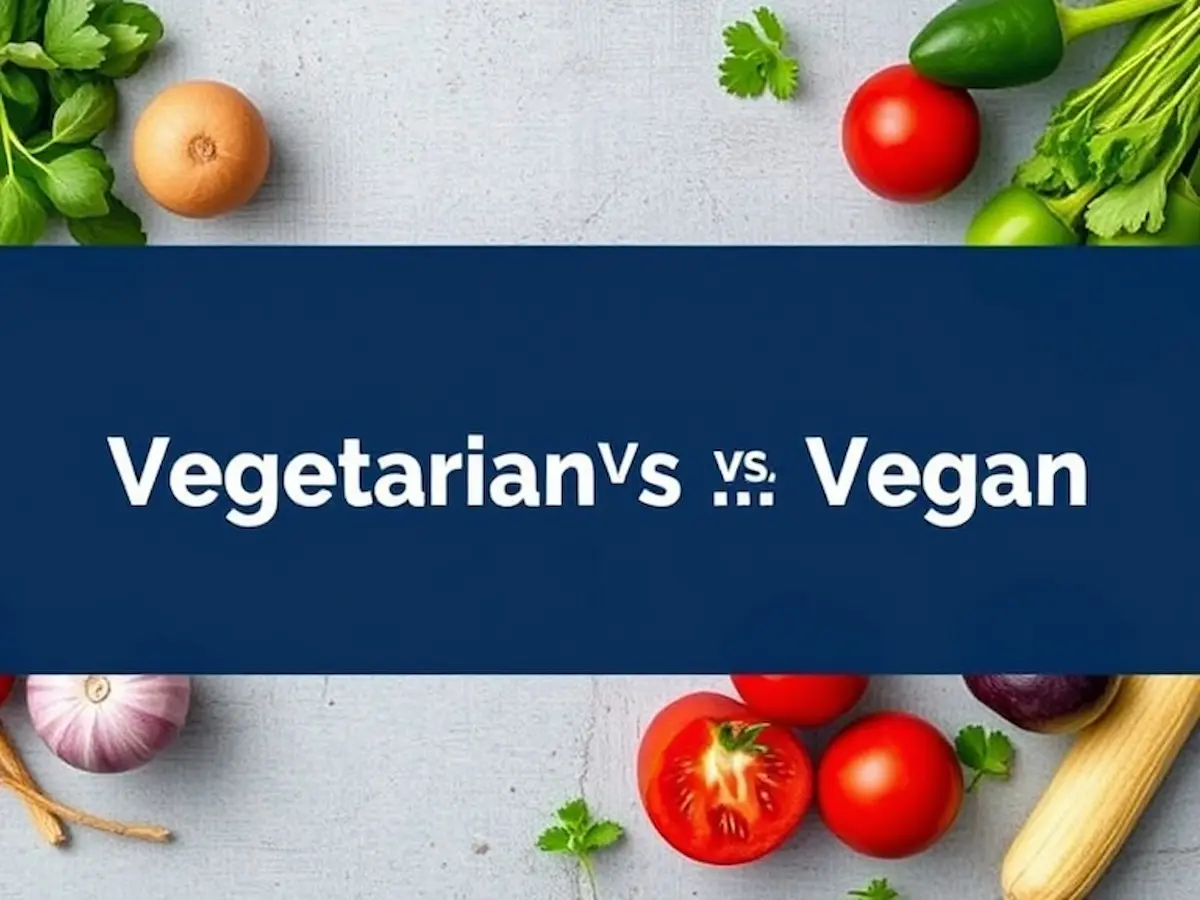Introduction
As pet owners, we strive to provide our beloved furry companions with the best care and nutrition. But what if we told you there’s a healthy and nutritious alternative to traditional Vegetarian Dog Food recipes? Enter vegetarian dog food, a plant-based diet that has gained traction recently.
Renowned philosopher Albert Einstein once said, “Nothing will benefit human health and increase the chances for survival of life on Earth as much as the evolution to a vegetarian diet.” These powerful words can also be applied to our four-legged friends. Like humans, dogs can thrive on a vegetarian diet when carefully balanced and nutritionally complete.
The benefits of a vegetarian diet for dogs are numerous. It can help reduce the risk of food allergies and sensitivities, improve digestion and gut health, and support sustainable and ethical pet food choices. By opting for a vegetarian dog food Recipe for Vegetarian Dog Food, you can prioritize your pet’s health and positively impact the environment.
In this article, we will explore the concept of vegetarian dog food and its benefits. We will also explore dogs’ nutritional needs and how to ensure a balanced vegetarian diet. Additionally, we will provide delicious recipes for vegetarian dog food and ideas for homemade vegetarian pet food, and we will incorporate expert opinions from veterinary nutritionists. So, let’s dig in and discover the world of vegetarian dog food.
The Rise of Vegetarian Dog Food: Healthier Choices for Your Furry Friend
More and more pet owners today choose vegetarian dog food to feed their dogs better and be kinder to the environment. Pet parents who choose this carefully designed alternative have found that their doggies do great with plant-based food, as these pets can digest both plants and meat. You can feed your dog correctly with vegetarian food that gives them the nutrients they need while leaving out foods that often make them ill – meat, beef, chicken, or fish.
The Lentil and Sweet Potato Bowl is a top dish on our menu, which gives dogs all their essential protein and nutrition. Eating this meal helps feed your dog well and gives them good energy to stay active. On top of that, it keeps their body working right and their coat looking healthy. Lentils help build muscle and keep dogs full since they have lots of protein. Sweet potatoes give energy, thanks to their helpful complex carbs.
The Quinoa and Vegetable Medley is a standout vegetarian dog food recipe. It mixes the super-grain quinoa with plenty of healthy vegetables, including zucchini, garden peas, and beneficial pumpkin. Quinoa provides complete protein from plants, helping our pets build and fix their muscles. The meal becomes much healthier when you mix vibrant vegetables, giving your dog essential antioxidants, vitamins, and water.
Making homemade meals for your pet lets you pick and use only reasonable, clean ingredients without unnecessary chemical fillers. A balanced diet requires daily calcium and taurine supplements to meet your dog’s nutritional needs. Vegetarian dog food choices now help pet parents feed their pets with delicious and healthy foods, supporting longer and healthier lives.
Creating Delicious Plant-Based Meals: Recipes for Optimal Nutrition
Making delicious vegetarian dishes for your dog isn’t hard – and making your dog happy while you do it makes it all the more worthwhile. Pet owners love making their dogs Chickpea and Oat Loaf, a vegetarian recipe that gives dogs protein-packed meals with fiber and taste. Chickpeas and oats make meals that provide a muscle-building protein to your dog while helping its digestive system work well.
The omega-3 fatty acids in flaxseeds work together perfectly to keep your pet’s joints feeling tremendous and give their coat a lovely gloss. Peel and grind chickpeas until they make a smooth paste. Add cooked oats, and cook it until the mixture gets firm. After baking, cut the loaf into small pieces that will give your dog a great-tasting and fulfilling snack. This pet food mix works well for pets with digestive problems because it doesn’t contain regular typical food causes of allergies.
If your dog craves something new, use the stir-fried Brown Rice and Tofu as their go-to option. The carbohydrates in brown rice are released slowly, which helps your dog stay active for a long time, while tofu supplies high-quality plant protein. Mix your dog’s favorite vegetables, cut them into tiny pieces, and stir-fry for a tasty dish that uses their taste buds in delicious ways. Many dog owners don’t realize how great tofu is as an amino acid source because it’s a complete protein with all the necessary nutrients.
Always cook vegetarian meals properly, leaving out garlic, onion, and no more than a reasonable amount of salt. When you cook pet food at home, you feed your dog what its body needs while creating a special bond by preparing healthy meals with all your love. Starting your dog on vegetarian food opens a whole new world of cooking, tasting, and improving its health, showing that plant-based choices make animals happier.
Understanding The Nutritional Needs Of Dogs

Dogs, like humans, have specific nutritional needs that must be met for optimal health and well-being. Understanding and addressing these needs regarding vegetarian canines is essential to ensuring their dietary requirements are adequately met.
Protein Sources for Vegetarian Canines
Proteins are essential for dogs as they provide amino acids for their bodies’ growth, development, and maintenance. While dogs are often associated with a meat-centric diet, vegetarian sources can also provide the required protein intake.
Plant-based protein sources for vegetarian dogs include:
- Tofu
- Quinoa
- Lentils
- Chickpeas
- Peas
These protein sources can be incorporated into your vegetarian dog’s diet to ensure they receive the necessary amino acids for muscle development and overall health.
Essential Vitamins and Minerals in a Dog’s Diet

In addition to protein, dogs require essential vitamins and minerals to support various bodily functions. When formulating a vegetarian dog diet, it’s necessary to ensure they receive adequate amounts of these nutrients.
Essential Vitamins And Minerals And Their Plant-Based Sources:
| Vitamin/Mineral | Plant-Based Sources |
| Vitamin A | Carrots, sweet potatoes |
| Vitamin B12 | Fortified nutritional yeast, spirulina |
| Calcium | Kale, broccoli, sesame seeds |
| Iron | Spinach, lentils, pumpkin seeds |
Incorporating these plant-based sources into your dog’s diet can help ensure that it receives the essential vitamins and minerals it needs for optimal health.
Balancing Macronutrients for Optimal Health
Macronutrients, including carbohydrates, proteins, and fats, are crucial to a dog’s health and well-being. Balancing these macronutrients is essential to provide the right combination of energy, muscle development, and overall nutritional support.
When formulating a vegetarian diet for your dog, it’s essential to consider the macronutrient balance. While plant-based protein sources can provide the necessary amino acids, ensuring a proper balance between carbohydrates and healthy fats is equally important.
Consulting with a veterinary nutritionist can help you create a balanced diet plan that meets your dog’s macronutrient needs while following a vegetarian approach.
The image visually represents dogs’ nutritional needs and can help pet owners understand the importance of a well-balanced diet for their vegetarian canines.
Understanding dogs’ nutritional needs and incorporating suitable protein sources, essential vitamins and minerals, and balanced macronutrients into a vegetarian diet can help pet owners ensure their dogs receive the necessary nutrients for optimal health and well-being.
Benefits Of Recipe for Vegetarian Dog Food
Switching your dog to a vegetarian diet can offer several benefits for their overall health and well-being.
Reducing the Risk of Food Allergies and Sensitivities
One key advantage of a vegetarian diet for dogs is the potential to reduce the risk of food allergies and sensitivities. Many commercial pet foods contain common allergens, such as beef, chicken, and dairy, which can trigger allergic reactions in some dogs. By eliminating these allergens from their diet and introducing plant-based alternatives, you can help alleviate food allergies and sensitivities in your furry friend, promoting a healthier and more comfortable life.
Improving Digestion and Gut Health
A Recipe for Vegetarian Dog Food can also improve digestion and gut health in canines. Plant-based foods are typically fiber-rich, promoting regular bowel movements and a healthy digestive system. The high fiber content helps prevent constipation and supports the growth of beneficial gut bacteria, improving overall digestive function. This can reduce digestive issues, such as bloating and gas, and enhance the absorption of essential nutrients.
Supporting Sustainable and Ethical Pet Food Choices
Choosing a Vegetarian Dog Food recipe benefits your dog’s health and aligns with sustainable and ethical principles. By opting for plant-based pet food, you are making a conscious decision to reduce the environmental impact of meat production. Additionally, vegetarian diets for dogs help decrease the demand for animal-based ingredients, supporting the ethical treatment of animals in the pet food industry.
| Benefit | Description |
| Reduced risk of food allergies and sensitivities | Avoiding common allergenic ingredients in commercial pet foods can help alleviate dog food allergies and sensitivities. |
| Improved digestion and gut health | Vegetarians’ high fiber content can enhance digestive function and promote a healthy gut microbiome. |
| Sustainable and ethical pet food choices | Choosing plant-based pet food supports sustainable practices and reduces the demand for animal-based ingredients, promoting ethical treatment of animals. |
Recipe for Vegetarian Pet Dog Food Ideas For Homemade

This section will provide Recipes for Vegetarian Dog Food ideas for homemade vegetarian pet food. Making pet food allows you to control the ingredients and ensure your dog receives a well-rounded plant-based diet. This nutritious and delicious Recipe offers alternatives to commercial pet food options. By preparing homemade vegetarian pet food, you can prioritize your furry friend’s health and provide them with wholesome meals they’ll love.
Healthy Recipe For Vegetarian Dog Food To Get Started:
- Quinoa and Vegetable Delight: Cook quinoa according to package instructions. In a separate pan, sauté mixed vegetables (carrots, peas, broccoli) until tender. Mix the cooked quinoa and vegetables together. Serve it to your dog once it has cooled.
- Bean and Rice Medley: Cook a combination of kidney beans, black beans, and brown rice. Mash the beans and mix them with the rice. Add a small amount of vegetable broth for flavor. Serve it at room temperature.
- Sweet Potato and Lentil Stew: Boil sweet potatoes and lentils until tender. Mash them together, adding water to reach the desired consistency. Once the stew has cooled, serve it.
- Pumpkin and Oat Biscuits: In a bowl, mix canned pumpkin, rolled oats, and whole wheat flour. Roll out the dough and cut it into biscuit shapes. Bake at 350°F for 20 minutes or until crispy.
These homemade vegetarian pet food Recipes for Vegetarian Dog Food are just a starting point. Feel free to explore different combinations of ingredients to meet your dog’s nutritional needs. It’s essential to consult with a veterinarian or a veterinary nutritionist to ensure that your dog’s specific dietary requirements are met. Remember to introduce new foods gradually and observe your dog for any signs of allergies or sensitivities.
Incorporating Expert Opinions On Vegetarian Pet Food
This section will gather insights from veterinary nutritionists and present their expert opinions on vegetarian pet food. These professionals specialize in animal diets and can provide valuable perspectives on the benefits and considerations of vegetarian diets for dogs.
Insights from Veterinary Nutritionists
Veterinary nutritionists have extensively studied and analyzed the impact of vegetarian diets on canine health. Their expertise allows them to assess dogs’ nutritional requirements and provide guidance on how to meet these needs using plant-based options. These experts can offer informed opinions on the potential benefits of vegetarian pet food, including improved digestion, reduced food allergies, and support for sustainable and ethical pet food choices.
Case Studies on Recipe for Vegetarian Dog Food
Case studies provide real-life examples and outcomes of dogs on plant-based diets, offering valuable insights for pet owners considering vegetarian pet food options. These studies showcase the experiences of dogs who have thrived on vegetarian diets, addressing concerns about their nutritional requirements and overall well-being. By examining these case studies, pet owners can better understand the benefits and challenges of incorporating plant-based diets for their canine companions.
Conclusion
In conclusion, vegetarian dog food offers a healthy and sustainable alternative for pet owners who want to provide their dogs with a plant-based diet. Throughout this article, we have highlighted the benefits of vegetarian diets for dogs and stressed the importance of meeting their nutritional needs. By carefully selecting suitable protein sources, incorporating essential vitamins and minerals, and balancing macronutrients, pet owners can ensure their vegetarian canines receive the necessary nutrients for optimal health.
Consulting with professionals, such as veterinary nutritionists, is essential when transitioning dogs to a vegetarian diet. These experts can provide valuable insights and guidance to ensure that dogs’ dietary requirements are met while also addressing pet owners’ concerns or questions. Their expertise can help pet owners make informed decisions regarding their dog’s diet and overall well-being.
Furthermore, real-life experiences and case studies have shown that dogs can thrive on vegetarian diets. Many pet owners have reported reduced food allergies and sensitivities in their dogs, improved digestion and gut health, and a greater sense of ethical and sustainable pet care. While individual needs may vary, these positive experiences add weight to the potential benefits of vegetarian dog food.
In conclusion, vegetarian dog food can be a viable pet food alternative for those seeking a plant-based diet for their dogs. While ensuring that all nutritional needs are met is essential, a balanced vegetarian diet can contribute to dogs’ overall health and well-being. As with any dietary change, consulting with professionals and closely monitoring your dog’s health and behavior is crucial to ensure the best possible outcome.
FAQ
Q: What is vegetarian dog food?
Vegetarian dog food is a plant-based alternative to traditional pet food without meat or animal by-products. It is formulated to provide dogs with the necessary nutrients and support their overall health while following a vegetarian diet.
Q: Is vegetarian dog food nutritionally balanced?
Yes, vegetarian dog food can be nutritionally balanced when appropriately formulated. It should provide all the nutrients dogs need for optimal health and well-being, including protein, vitamins, and minerals. Choose a vegetarian dog food brand that meets the Association of American Feed Control Officials (AAFCO) guidelines to ensure your dog’s nutritional requirements are met.
Q: Are there any benefits to feeding dogs a vegetarian diet?
Feeding dogs a vegetarian diet can have several benefits. It can help reduce the risk of food allergies and sensitivities, improve digestion and gut health, and support sustainable and ethical pet food choices. However, it is essential to consult with a veterinarian or veterinary nutritionist before switching your dog to a vegetarian diet to ensure it suits its needs.
Q: Can dogs thrive on a vegetarian diet?
Yes, dogs can thrive on a vegetarian diet if it is appropriately balanced and meets their nutritional needs. However, ensuring that vegetarian dog food provides all the essential nutrients, particularly protein, is crucial for muscle development and overall health. Consulting with a veterinarian or veterinary nutritionist can help ensure your dog’s vegetarian diet is appropriate and balanced.
Q: Can I make homemade vegetarian food for my dog?
Yes, you can make homemade vegetarian food for your dog. Various vegetarian dog food Recipes for Vegetarian Dog Food combine plant-based ingredients to meet your dog’s nutritional needs. It is essential to follow a balanced recipe and ensure that your dog’s diet includes all the vital nutrients it requires. Consulting with a veterinarian or veterinary nutritionist can help ensure you provide your dog with a well-rounded vegetarian diet.
Q: Should I consult a veterinarian before feeding my dog a vegetarian diet?
Yes, it is highly recommended that you consult with a veterinarian or veterinary nutritionist before feeding your dog a vegetarian diet. They can assess your dog’s nutritional needs and guide the best approach to meeting them with a vegetarian diet. They can also recommend suitable vegetarian dog food brands or help you formulate homemade vegetarian Recipes for Vegetarian Dog Food that are nutritionally balanced for your dog.








